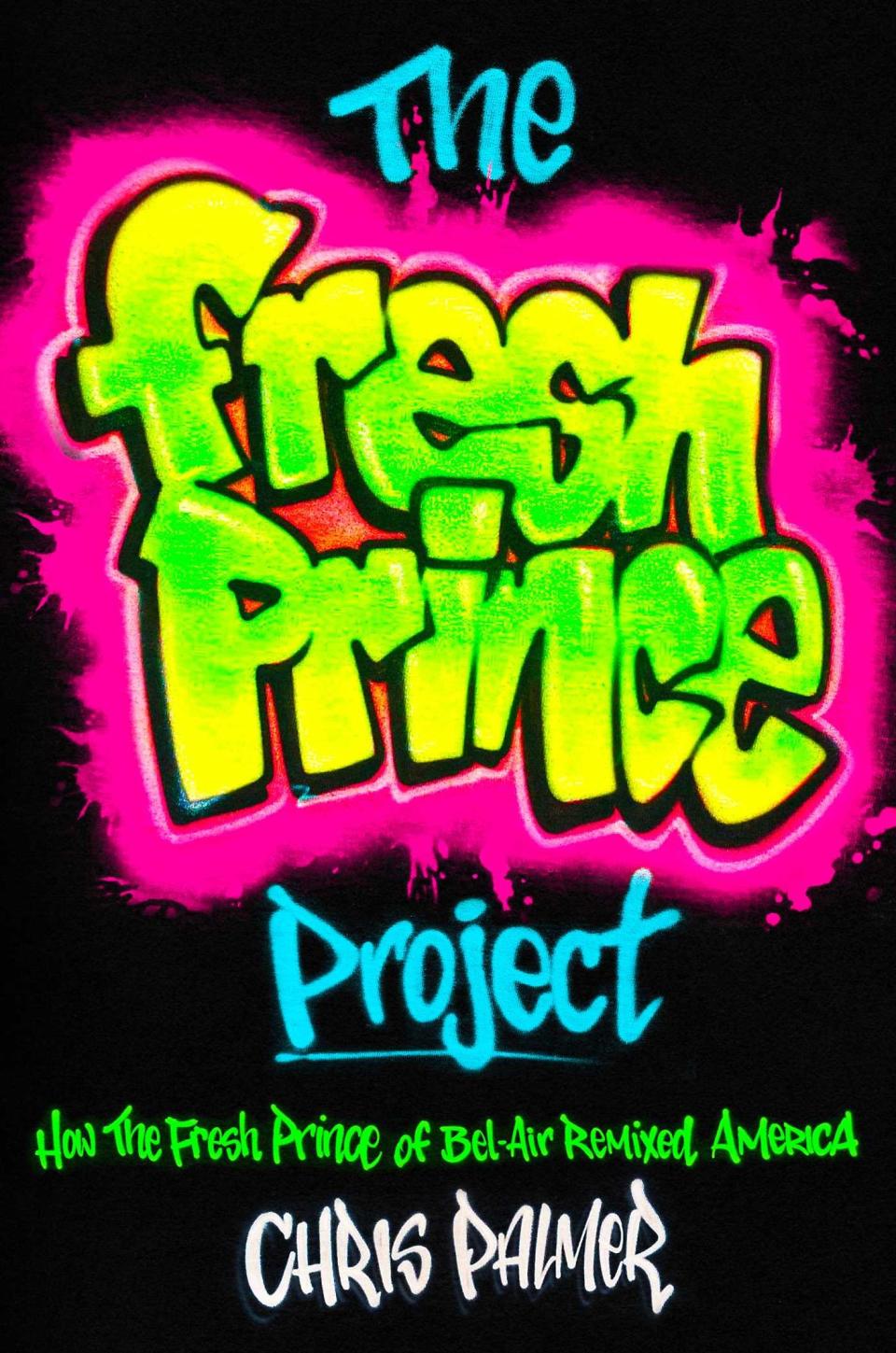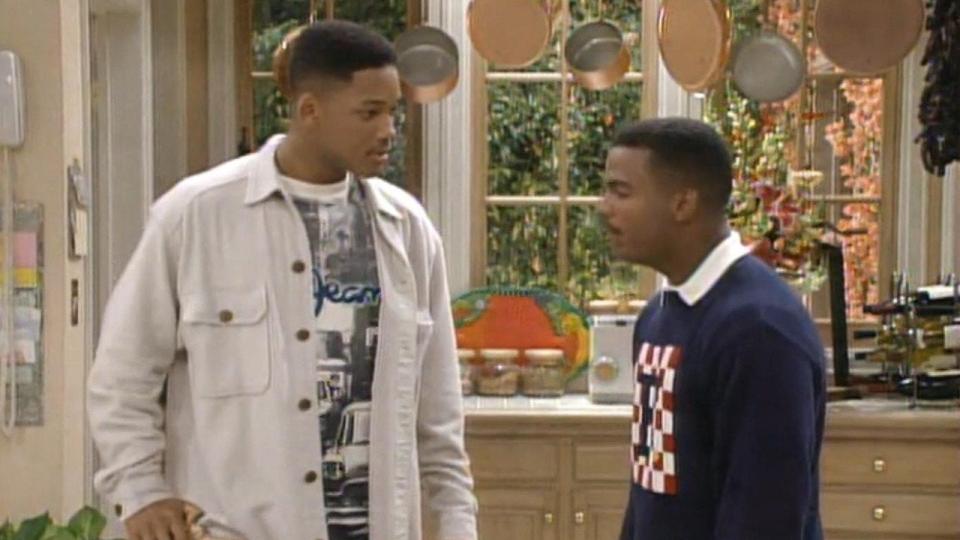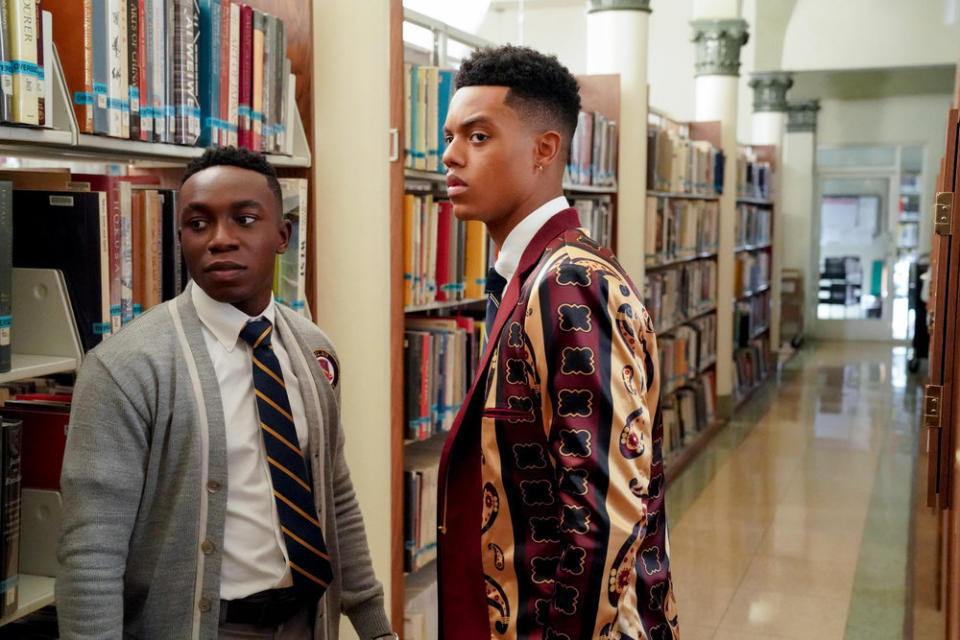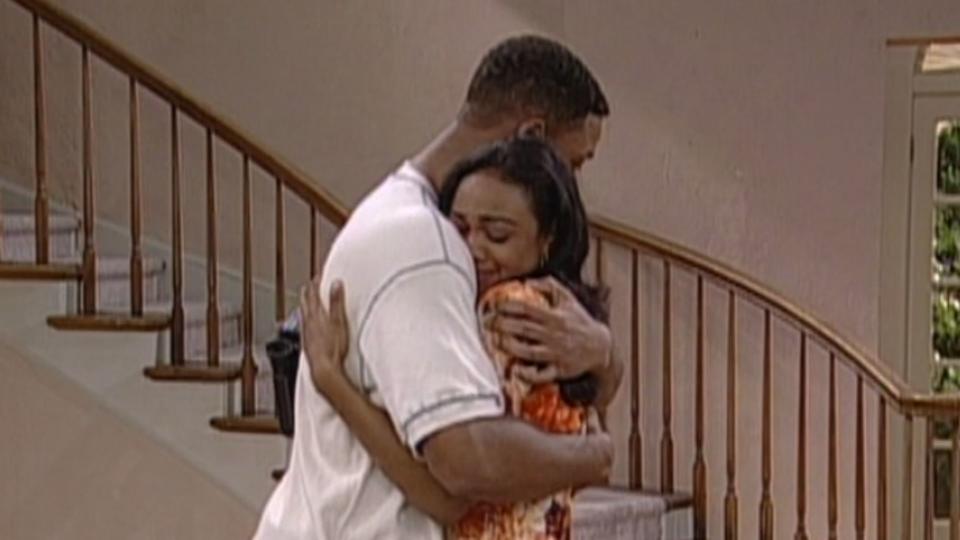Chris Palmer on Crafting THE FRESH PRINCE PROJECT and the Will/Carlton Dynamic
The Fresh Prince of Bel-Air aired its final episode in 1996; however, it feels like the show never truly left us. It’s become an ubiquitous influence on pop culture, from Will Smith’s catchy theme song to endless memes and GIFs on social media everyday. We see consistent reruns on television and HBO Max gave us the gift of The Fresh Prince reunion special. We also have Bel-Air, the dramatic reimagining of the series that is encouraging a new generation of fans to check out its predecessor. And, of course, Will Smith is an entertainment legend yet he always shows love to the place where his acting career was born. Basically, The Fresh Prince of Bel-Air is iconic and worthy of being preserved and studied much like its white counterparts.

That’s where The Fresh Prince Project: How The Fresh Prince of Bel-Air Remixed America comes in. (We will call it The Fresh Prince Project.) Written by sports journalist and author Chris Palmer, this book gives a comprehensive and entertaining account of the making and success of this classic show. From interviews to in-depth historical dives that coincide with The Fresh Prince’s DNA and inextricable tie into ‘90s Black culture, The Fresh Prince Project is truly a must-read for fans of the show. Nerdist chatted with Chris Palmer about his intense research process, relationship with the series, and favorite Fresh Prince moments.
Nerdist: When did you become a Fresh Prince fan? And what impact has the show had on your life?
Chris Palmer: I’m pretty much one of the originals. I saw the first episode when it debuted in 1990. So that was when I first became a Fresh Prince of Bel-Air fan. But even before that, I was a fan of DJ Jazzy Jeff & the Fresh Prince. At the time, hip-hop was really starting to gain traction in the mainstream, and that was the only rap that we were allowed to listen to.
I remember my mom got me a DJ Jazzy Jeff & Fresh Prince album. It was He’s the DJ, I’m the Rapper, which had big hits. That was the first hip-hop I listened to. And so when the show came out, I was looking forward to it because there were no shows that had this sort of hip-hop vibe to it. It was all very fresh and very new at the time. So I’ve been there from the very beginning of the show. It ran for six seasons, from 1990 to 1996.
I was very young when the show was on, of course. But it had a big impact on me, just the vibe and how cool Will was. And I saw a little bit of myself in Carlton as well. But yeah, I was there from the very beginning.

I love that. It’s interesting that you saw a little bit of yourself in both Will and Carlton, because a lot of the book really focuses on their dynamic. Why do you think it was vital to do a deep analysis of their relationship?
Palmer: From a television storytelling standpoint, we had never seen that [type of dynamic] before. Because if you look at The Fresh Prince, it’s a classic fish-out-of-water show. You take one character, and you put him in an unusual environment. We’ve seen fish-out-of-water shows with Black characters, but they’re usually placed in a white environment. But [The Fresh Prince] was a unique fish-out-of-water show taking a Black kid and putting him with a Black family, but they were culturally and socioeconomically different. Will came from the hood and the Banks family lived in the richest neighborhood in America.
And so you could still have conflict and misunderstandings, but you could have the conflict of Blackness where you had two different types of Black folks who would interact with each other. So that was very new about the show.
Now, from a personal standpoint, when I watched the show, I saw a little bit of myself. I’m a biracial kid, so I saw a little bit of myself in Will because I was a little bit athletic, and I dressed similar to him. But I saw a lot of myself in Carlton, where I was really into books and reading and things of that nature. I was never quite either one of them, so I saw myself as sort of a mix of the two. And so that’s one of the reasons why I focused so much on their dynamic.
And their dynamic is what motors the show. It gives you a lot of the humor. “You’re not black enough.” “Well, you’re too this or too that.” And it also gives you an entryway into a lot of things like, what is Blackness? Carlton and Will both had their definition of Blackness, and they were both wrong because there is no one definition. Will saw it one way and Carlton saw it this way, and it took them the whole series to realize that they’re both right.

Right! They have my favorite dynamic on the show because they learned a lot from each other, but they also imprint on each other in different ways. I think through Will, Carlton was able to find his voice, stand up for himself in a different way, and was really able to see the world for what it was. Whereas with Will, he had this very, like you said, narrow idea of what Blackness was because he had only seen one facet of what it meant to be Black. And so he got a chance to expand his horizons. Even in Bel-Air, we are once again seeing the Will/Carlton story play out in today’s times.
Palmer: Right. When you look at these two, Will is the cool guy. He’s a confident guy. He’s always got the best lines. He can talk to the ladies. He can do all this stuff. And Carlton comes off as very nerdy. But in reality, Carlton is way more confident than Will is. Will is pretending. He’s playing a character. Carlton is actually much more confident because he is comfortable in his own skin, while Will is a bit of a wayward sort who is still trying to figure out who he is. Carlton’s life has been laid out for him. He knows exactly who he wants to be, which gives him that sort of natural confidence. And Will, over the course of the series, starts to see that about Carlton. And then they come together, and they have each other’s back like no other.
It’s truly one of the best aspects of the series. And it’s honestly so cool that you’ve reached this peak level of fandom by writing an entire book! Why did you write The Fresh Prince Project and what do you hope fans take away from it?
Palmer: Everyone knows me from basketball and sports. I cover the NBA. It’s what I’m known for. But I’m super into pop culture, whether it’s TV, film, movies, fashion, music, anything. And I read a lot about it. I have tons of books on The Simpsons, books on The Wire, and all this stuff. And I thought to myself, since I love the show so much, I was like, “Well, I’d like to read a book on The Fresh Prince of Bel-Air.” So I started looking for one, and I quickly found that one didn’t exist, so I wrote it.
That was the whole jumping-off point. I want people [who read it] to understand how groundbreaking it was because it was the first hip-hop show, the show with the hip-hop edge. That didn’t exist before. Now it’s normal for every rapper to be an actor. But that wasn’t the case back then. Will [Smith] was the first and he became incredibly good at it.

Absolutely. The Fresh Prince of Bel-Air has been written about and analyzed a lot, but The Fresh Prince Project takes things a step further. You can tell this is a truly comprehensive project. So, I’d like for you to walk me through some of your research process and your overall timeline.
Palmer: It always begins with the research. So I spent maybe six months to eight months… well, first of all, you’re researching the entire time, but you have your initial research block in the beginning. You’re studying. You’re learning because there’s going to be many things that you don’t know. There are going to be many people who populate this story, this world, that you’ve never heard of. And you have to find out who they are, and you have to learn everything about them and their impact on this whole landscape. So that takes a long time. You’re just doing everything. You’re searching everywhere, and you have these mounds of information.
Then, when you’re done with that… well, you’re never done, but you’re comfortable. Then you begin the interview process. So, you’re interviewing showrunners, writers, actors, stagehands, and people that didn’t work on the show but that were part of TV. Maybe somebody worked for a network. And for me, I’m a basketball guy. If I’m doing a basketball book on this guy, I can pick up the phone and call 75, 80 people easily, like that. But with The Fresh Prince Project, I didn’t know one single person that I talked to.
So I had to call everybody cold. I had to email them cold. I had to hit them up on social media cold. And I’m this strange guy saying, “Hey. Can you devote your time to me for free? Then I can do this book.” A lot of people were incredibly helpful and forthcoming. Some people were like, “No.” Some people never called me back. But I talked to a couple hundred people, just under that.
Wow, that is a really daunting task.
Palmer: For sure. You begin to compile all this stuff. And every time you talk to somebody, you’re learning something new that you now have to go and research deeper. So the research never really ends. Now you have to write. You’ve done all this for a year and a half, and now you start your writing process.
And for me, the writing process is the easiest part about it because I have all the research. I have everything. I know what my structure is… how I want to layer the chapters, kind of move back and forth in the timeline.
It truly took a lot to get to this point! I know another part of your research process was going back to watch the entire series. There are some that stick in fans’ minds like “Papa’s Got a Brand-New Excuse,” but are there other more underrated episodes that feel important to the show’s DNA?
Palmer: There’s one episode that I really love and I wish I would’ve touched on it more. [It’s] when Will becomes a basketball star, and Carlton becomes jealous because now Phil is giving him all of the attention. And then to win back that attention, he tries to hit the game-winning shot, and he messes up, and he just sails wide-right. That’s one of my favorite ultimate underrated episodes. But now it lives on, because there’s a meme of Carlton missing the shot.
And I think one of my favorites, which I touched on in the book, is the finale, “I, Done” and that famous scene, which is also a meme, of Will standing in the living room by himself. He’s like, “Man, I’m going to miss this place.” Uncle Phil comes in and says, “You’re my son.” And if you go back into the first episode, [Uncle Phil] shuns him. When Aunt Viv says, “He’s family,” he says, “By marriage.” But now you go all the way to the very end, he was like, “You are my son.” That was really special, a powerful moment. If you just watch reruns here and there, you’ll never make that full connection from the first episode to that last really poignant moment.
Will truly became one of the Banks kids. When you were rewatching some of those episodes for the first time in decades, what new revelations did you discover?
Palmer: When I watched it as a kid, it was cool, and it was fun, and it was comedy, and that’s why I watched the show. And a lot of the themes went over my head, the themes of family and togetherness… I certainly didn’t understand the themes of Blackness back then, because when I was watching, I was very young… But now when I watch it, it’s what I see. They weaved in those themes but didn’t preach to you because it’s a comedy show first and foremost.

And I think it was written by a lot of really, really, really smart people, even though sometimes the early comedy is slapstick. It’s meant to be that way because it’s meant to make you laugh. But the themes behind it, the rhythm of the jokes and the back and forth, were done by a lot of very, very intelligent writers. You don’t notice it as a kid, but you now see it as an adult. It’s much deeper and layered, even before the more serious episodes.. That’s the legacy of the show, that those themes are still relevant. Even though it was this colorful, flamboyant, bouncy kind of show, the themes that they hit are still here today. You know what I’m sayin’? They’re still relevant.
Indeed. So, let’s wrap up with a little fun. Which episodes make you “gut laugh” whenever you see them?
Palmer: That’s easy! It’s the one when Geoffrey goes to Will’s school, and he’s De La Ghetto. And he does the famous speech. “Cannons to the left of them! Cannons to the right!” …man, I cry every time I see it. And 72 Hours, when Will bets Carlton he can’t hang out and survive in the hood. Will and Jazz leave him there, and when they come back, Carlton pops up with the durag on. He’s like, “What’s up?! You dissin’ me?!” That kills every time. I love it.
That episode is hilarious! I love when Aunt Viv shows up and turns into everyone’s mama. And it’s truly that continuous nostalgia for those moments that prove why The Fresh Prince Project is vital.
Palmer: It’s a very nostalgic show. And I’m a sucker for nostalgia.
The Fresh Prince Project is currently available for purchase.